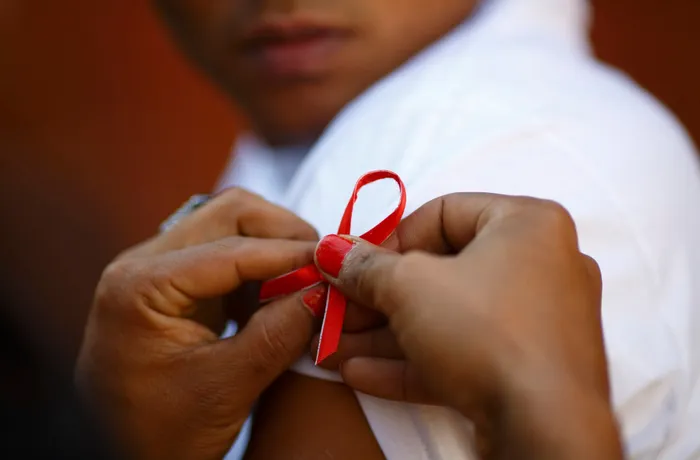
The US has kept its PEPFAR AIDS/HIV programs as it cut off its other USAID funding
Image: Navesh Chitrakar /Independent Newspapers
Last week, the President’s Emergency Plan for AIDS Relief narrowly escaped a devastating $400 million budget cut thanks to Republican Sens. Susan Collins (Maine) and Lisa Murkowski (Alaska), who voted alongside their Democratic colleagues to protect the program. That was a relief: Since its creation under President George W. Bush in 2003, the anti-HIV/AIDS program has saved an estimated 26 million lives and allowed 7.8 million babies to be born HIV-free.
But preserving PEPFAR shouldn’t be seen as the end goal. Instead, global health officials should be working toward the day when the world no longer needs it.
That ambitious goal might sound far-fetched, given that an estimated 1.3 million people were newly infected with HIV in 2023 globally. But consider this: Last month, the Food and Drug Administration approved a drug called lenacapavir, a twice-yearly injectable treatment that clinical trials have shown is 100 percent effective at preventing HIV infection among young women and 96 percent effective among gay and bisexual men and transgender people.
The drug has the potential to be a groundbreaking improvement over the current standard for HIV prevention, oral PrEP (pre-exposure prophylaxis treatment). For all its promise, oral PrEP has confronted the difficult realities of human behaviour. Adhering to a daily medication regimen is challenging under any circumstances, but especially so in communities where HIV-related stigma is pervasive. Even in wealthier countries, gay men who take the medication have been disparaged. Oral PrEP also tends to be less effective in women, though studies differ on whether this is due to lower adherence and access barriers or biological differences in how the medication is absorbed in female anatomy.
Lenacapavir, manufactured by Gilead Sciences, could help address these challenges. It is discreet and can be administered privately in a clinical setting. It requires dosing only twice a year, and it is easier and less painful to administer than previous injectable drugs to prevent HIV.
In the United States, lenacapavir costs more than $28,000 per person per year before insurance. But Gilead has licensed six generic manufacturers to produce the drug at cost for 120 low- and middle-income countries. Together with the Global Fund, the company has pledged to distribute 2 million doses - still a drop in the bucket compared to what’s needed for population-level protection, but a meaningful start.
Of course, the drug is no silver bullet. Unfortunately none of the licensed generic manufacturers are based in sub-Saharan Africa, the region with the greatest need, and scaling up production could take years. So far, the U.S. is the only country to approve it, and regulatory timelines elsewhere are likely to lag.
Nevertheless, lenacapavir is exciting for what it represents: An innovation that can draw PEPFAR into a new era defined not by fighting HIV, but ending it. Advocates of the program should remember that it was designed as an emergency response to an uncontained pandemic; for it to become a permanent fixture of global health would constitute a failure of its mission.
Moreover, the program is far from perfect. Like many HIV prevention programs, it often sacrifices preventative care for treatment when budgets tighten. Those trade-offs stand in the way of HIV elimination. The program is also, regrettably, subject to the whims of U.S. politics. In February, Secretary of State Marco Rubio restricted HIV prevention aid so that only pregnant and breastfeeding women can receive it - as if to invite more AIDS epidemics.
The world has a long way to go until PEPFAR can safely be shuttered. After all, foundations and private companies cannot replace the program, which provides nearly 70 percent of global financing for HIV/AIDS response. But it’s possible to imagine a future in which biomedical science and investments into a sustainable health infrastructure make the program obsolete. That’s something the world should strive for. - The Washington Post
Related Topics: